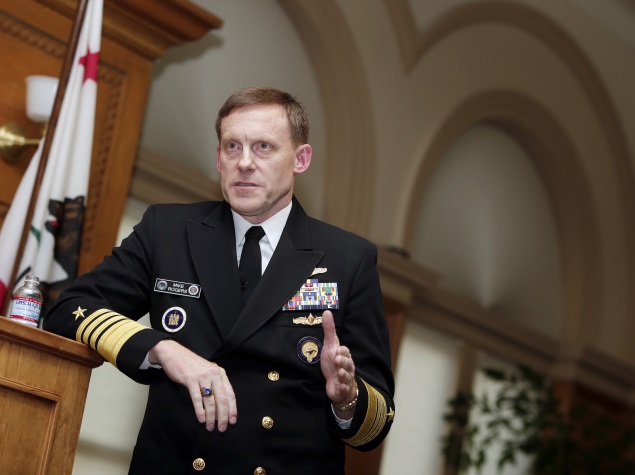- Home
- Internet
- Internet News
- US Needs Silicon Valley's Expertise, Says NSA Director
US Needs Silicon Valley's Expertise, Says NSA Director

While the federal government is never going to match Silicon Valley salaries, "we are going to give you the opportunity to do some neat stuff, things you probably aren't going to be able to do anywhere else," Rogers said.
Rogers, who also heads up U.S. Cyber Command, said he visits the region at least every six months to tap into local talent and stay attuned to the latest innovations.
During a question and answer session, Jennifer Granick, director of civil liberties at the Stanford Center for Internet and Society, asked Rogers how he can explain disclosures by former NSA contractor Edward Snowden that the agency secretly broke into communications on Yahoo and Google overseas.
Rogers said his agency does not violate U.S. privacy laws here or abroad working with partner intelligence agencies.
"I'm comfortable with what we do, with our partners," he said.
Mark Jaycox, an Electronic Frontier Foundation legislative analyst who watched the speech via a webstream, said Rogers, who was sworn in in April, has not addressed most privacy concerns raised in recent years.
"Unfortunately, Admiral Rogers hasn't yet engaged on many of the NSA's more egregious activities like disrupting national standards for encryption or the NSA's hacking of American companies' internal databases," Jaycox said.
Get your daily dose of tech news, reviews, and insights, in under 80 characters on Gadgets 360 Turbo. Connect with fellow tech lovers on our Forum. Follow us on X, Facebook, WhatsApp, Threads and Google News for instant updates. Catch all the action on our YouTube channel.
Related Stories
- Samsung Galaxy Unpacked 2026
- iPhone 17 Pro Max
- ChatGPT
- iOS 26
- Laptop Under 50000
- Smartwatch Under 10000
- Apple Vision Pro
- Oneplus 12
- OnePlus Nord CE 3 Lite 5G
- iPhone 13
- Xiaomi 14 Pro
- Oppo Find N3
- Tecno Spark Go (2023)
- Realme V30
- Best Phones Under 25000
- Samsung Galaxy S24 Series
- Cryptocurrency
- iQoo 12
- Samsung Galaxy S24 Ultra
- Giottus
- Samsung Galaxy Z Flip 5
- Apple 'Scary Fast'
- Housefull 5
- GoPro Hero 12 Black Review
- Invincible Season 2
- JioGlass
- HD Ready TV
- Latest Mobile Phones
- Compare Phones
- Tecno Pova Curve 2 5G
- Lava Yuva Star 3
- Honor X6d
- OPPO K14x 5G
- Samsung Galaxy F70e 5G
- iQOO 15 Ultra
- OPPO A6v 5G
- OPPO A6i+ 5G
- Asus Vivobook 16 (M1605NAQ)
- Asus Vivobook 15 (2026)
- Brave Ark 2-in-1
- Black Shark Gaming Tablet
- boAt Chrome Iris
- HMD Watch P1
- Haier H5E Series
- Acerpure Nitro Z Series 100-inch QLED TV
- Asus ROG Ally
- Nintendo Switch Lite
- Haier 1.6 Ton 5 Star Inverter Split AC (HSU19G-MZAID5BN-INV)
- Haier 1.6 Ton 5 Star Inverter Split AC (HSU19G-MZAIM5BN-INV)






![[Partner Content] OPPO Reno15 Series: AI Portrait Camera, Popout and First Compact Reno](https://www.gadgets360.com/static/mobile/images/spacer.png)









